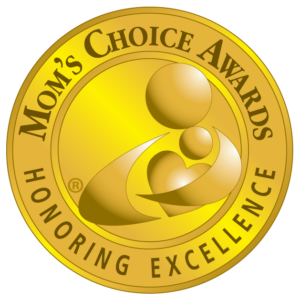Caregiving Models from Dr. Aaron Blight
Dr. Blight’s models are useful for family caregivers to analyze and reflect upon their personal circumstances. The models are designed to serve as tools for learning and growth and may be applied to a variety of caregiving contexts. Licensed professionals are welcome to use the downloadable sheets to 1) use shared language to review circumstances with the family caregiver, 2) listen to the family caregiver’s thoughts, and 3) bring professional guidance to the discussion.
The Caregiver Resilience Model
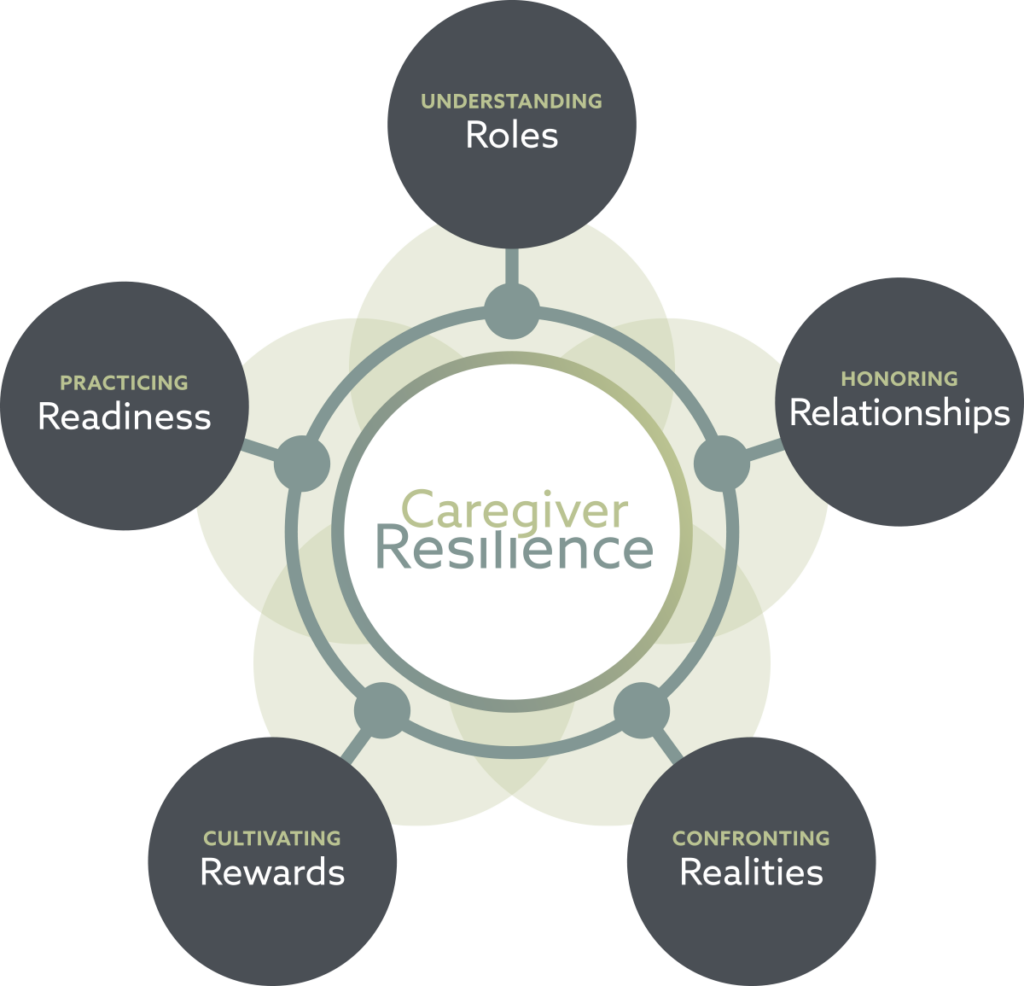
Views family caregiving through a lens defined by roles, relationships, realities, rewards, and readiness.
The Pattern of Caregiver Development Model
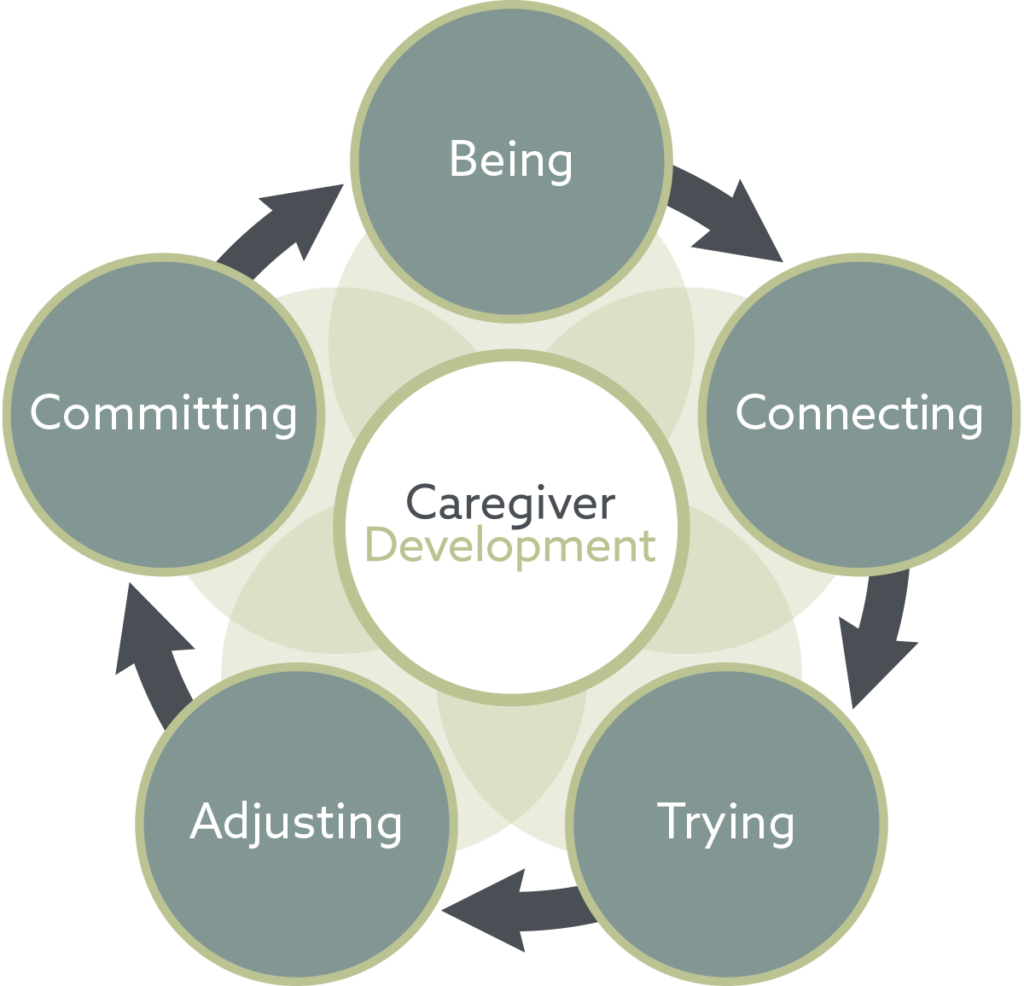
Describes the process by which a family member learns to fulfill an emerging caregiver role.
The Caregiver Mindshift Model
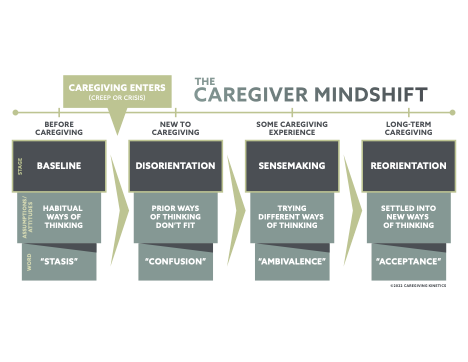
Depicts the cognitive shifts in attitudes or assumptions that family caregivers experience over time.
Caring for another is one of the noblest human activities.
It’s also one of the most stressful, posing challenges that can be painful, confusing, and deeply rewarding – sometimes all at once.
When Caregiving Calls is an invitation to a deep conversation about caregiving and its meaning for you.
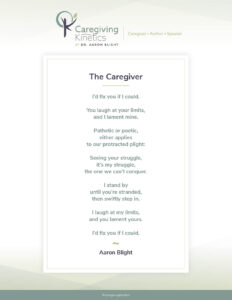
“The Caregiver,” A Poem by Dr. Aaron Blight
Poetry can encapsulate something in a succinct but profound way. I wrote this poem in an attempt to capture the unique qualities of a caregiving relationship, and I wanted to share it with you.
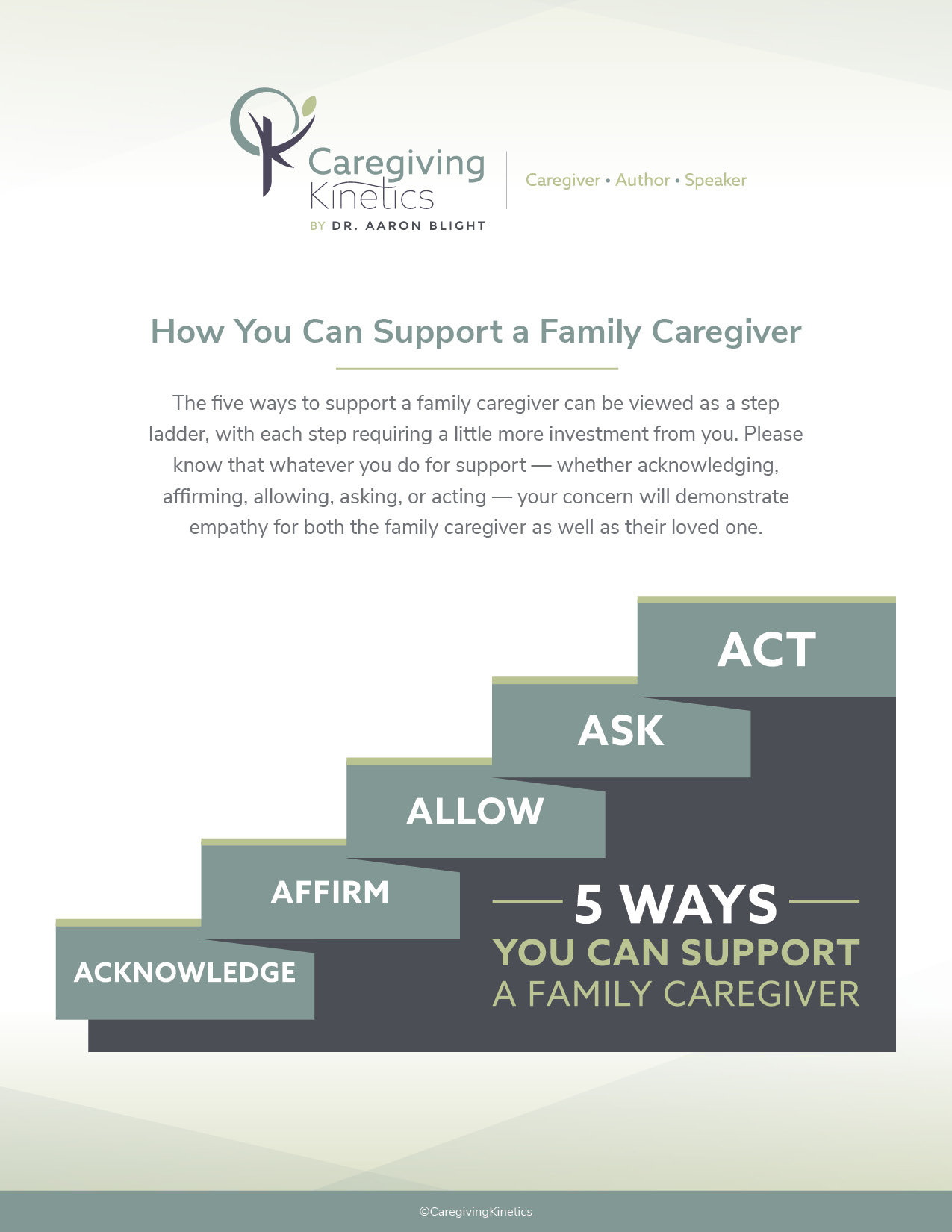
How You Can Support a Family Caregiver
The five ways to support a family caregiver can be viewed as a step ladder, with each step requiring a little more investment from you. Please know that whatever you do for support — whether acknowledging, affirming, allowing, asking, or acting — your concern will demonstrate empathy for both the family caregiver as well as their loved one.
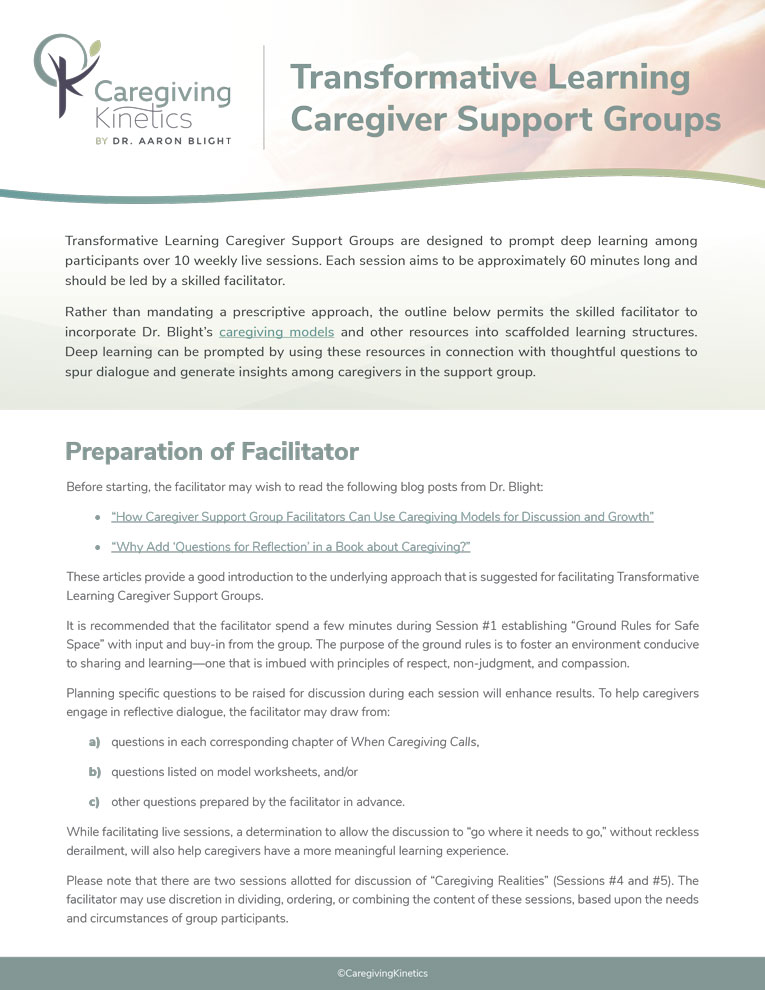
Transformative Learning Caregiver Support Groups
Transformative Learning Caregiver Support Groups are designed to prompt deep learning among participants over 10 weekly live sessions. Each session aims to be approximately 60 minutes long and should be led by a skilled facilitator.
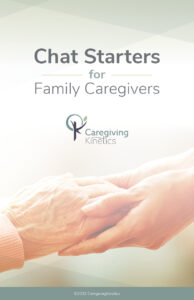
Chat Starters for Family Caregivers
Chat Starters for Family Caregivers contains over 100 pages of conversation prompts to help caregivers and care receivers make the most of their time together.
Dr. Blight has partnered with the Duet Meaning & Hope Institute to make this publicly available as a free resource. To download your copy today, please go to this page on the Duet Meaning & Hope website.
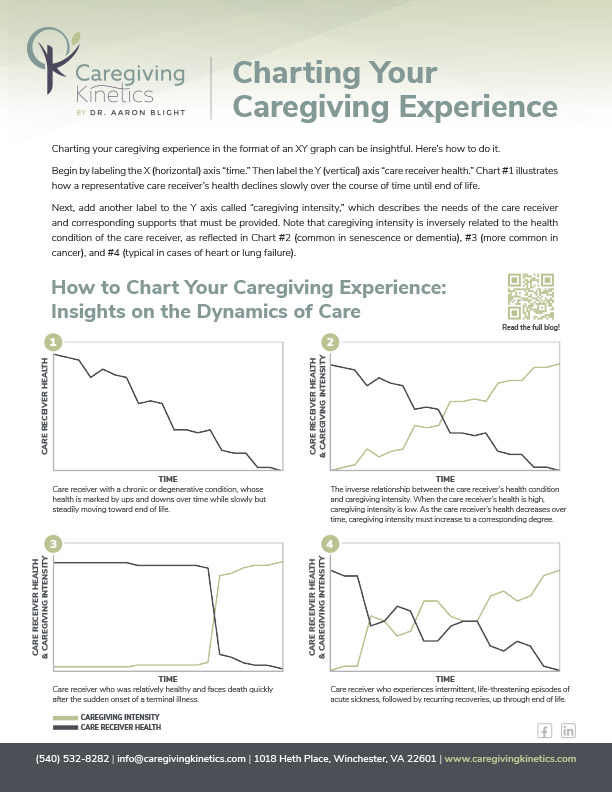
Charting Your Caregiving Experience
Charting Your Caregiving Experience provides family caregivers and the professionals who support them a way to depict the trajectory of care-related experience over time. Because the relationship between care receiver health and caregiving intensity is clear, a graphical visualization of the interplay between these two dynamic elements of caregiving can generate insights and thought-provoking discussions about how to help not only the care receiver but also the caregiver.
Other Helpful Resources
These additional resources have been used to help family caregivers assess the impact that caregiving is having on them, not just physically but also emotionally.
Having issues within your caregiving situation?
The Emotions Worksheet from Caregiving Kinetics – an exercise that can reveal the emotional impact of continued caregiving.
Take The AMA Caregiver Self Assessment
The Caregiver Health Self-Assessment from the American Medical Association – a tool that enables caregivers to assess their behavior and health-related risks.
Caregiver Burden Self-Assessment
The Zarit Burden Interview Self-Assessment – an instrument that allows caregivers to measure their degree of caregiver burden.
Caregiving Insights with Dr. Aaron Blight
Caregiving Insights is a webinar series from caregiving.com. Dr. Aaron Blight shares insights for providers and families on the complexities of caregiving.
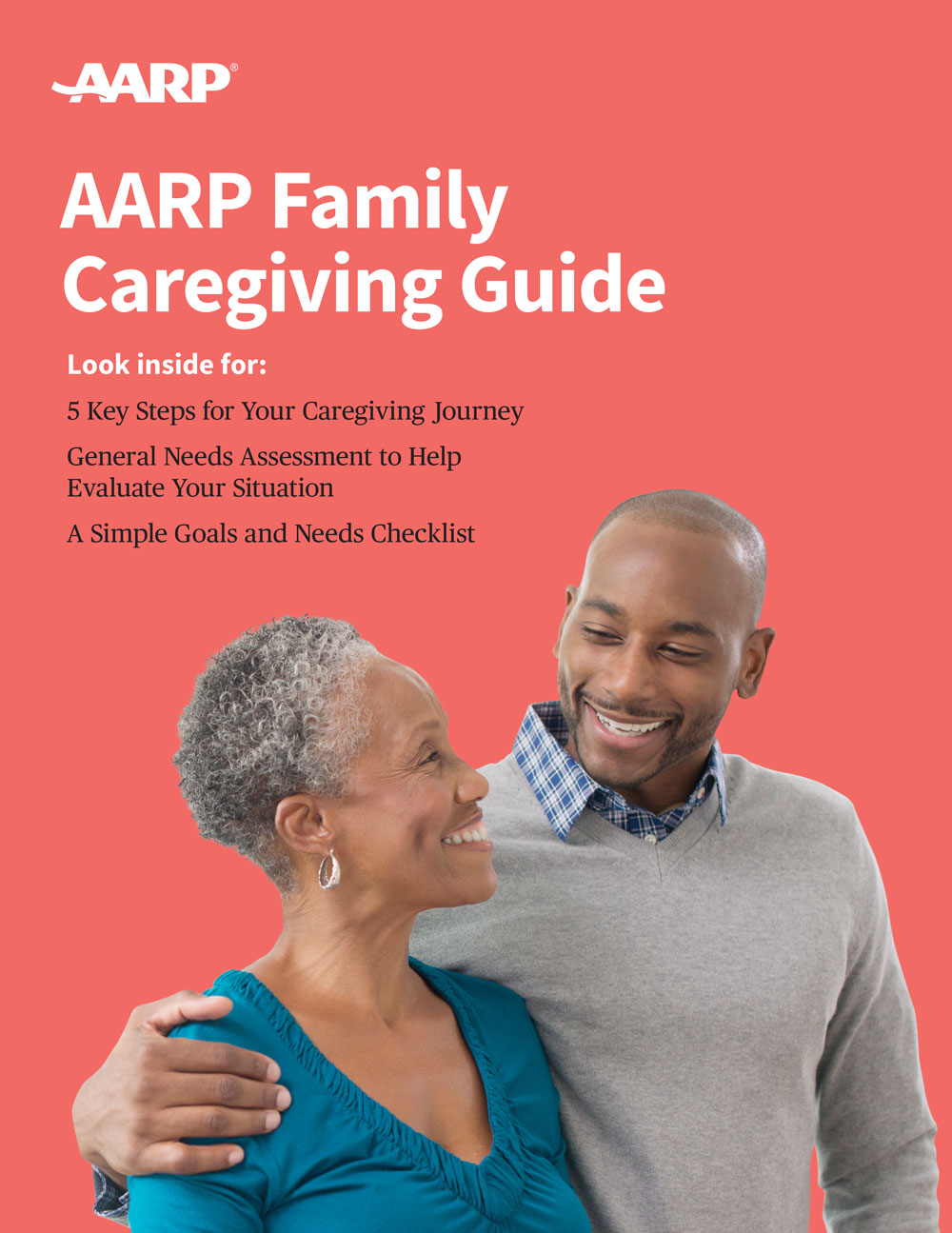
AARP Caregiving Guide
AARP Family Caregiving Guides are designed to help develop and implement a caregiving plan for a loved one or friend.


